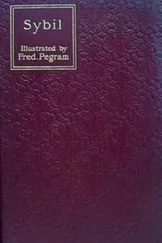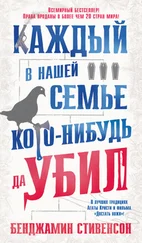‘So why didn’t you?’ asked Luke.
Once, while driving through Wisconsin in the depth of summer – she was en route from a conference in Chicago to a second conference in Madison – Varya stopped to stand knee-high in Devil’s Lake. She was desperate to cool off, but the water was warm, and dozens of tiny minnows began to peck at her ankles and feet. For a moment, she could not move; she stood in the sand, so full of feeling she thought she might burst. Of what feeling, exactly? The unbearable ecstasy of proximity, of symbiotic exchange.
‘I was afraid,’ she says. ‘Of all the things that can go wrong when people are attached to each other.’
Luke pauses. ‘You could have gotten an abortion.’
‘I could have. I made an appointment. But I couldn’t do it.’
‘For religious reasons?’
‘No. I felt –’ But here her voice becomes rough and drops off. She picks up her mug and drinks until her throat relaxes. ‘It’s as though I was trying to compensate – for the fact that I was inward. For the fact that I didn’t engage in life, not fully. I thought – I hoped – you would.’
How had she been able to do it? Because she thought of them: Simon and Saul, Klara and Daniel and Gertie. She thought of them in her second trimester, when she was often disabled by panic, and during her third, when she felt huge as a walrus and peed more than she slept. She thought of them with every push. She held them in her mind so that she could feel nothing else – she loved them and loved them until they disarmed her, made her strong and broke her open, gave her powers she did not normally have.
But she could not sustain it. As she rode home from the hospital with her arms folded over her stomach, she wondered what kind of a person she was to give up a child for no better reason than her own fearfulness. The answer came to her immediately: the kind of person who did not deserve that child. Her body, which had been full to bursting with life, which had burst with life, was now hollow, the way it had been before – the way it had always been. At this she felt sorrow but also relief, and the relief inspired such self-loathing that she knew she was right. She could not bear that kind of life: dangerous, fleshy, full of love so painful it took her breath away.
‘So what’s happened since then?’ asks Luke.
‘What do you mean?’
‘Did you have another kid? Did you ever get married?’
Varya shakes her head.
He frowns, puzzled. ‘Are you gay?’
‘No. I’ve simply never – not since then, I haven’t –’
She inhales sharply, a soundless hiccup. When Luke grasps her meaning, he startles. ‘You haven’t had a relationship since the professor? You’ve had nothing?’
‘Not nothing . But a relationship? No.’
She prepares herself for his pity. Instead, he looks indignant, as if Varya has deprived herself of something essential.
‘Aren’t you lonely?’
‘Sometimes. Isn’t everyone?’ she says, and smiles.
Abruptly, Luke stands. She thinks he’s going to the bathroom, but he walks into the kitchen and stands at the sink. He presses his palms to the counter; his shoulders are hunched like Frida’s. In front of the sink, on the windowsill, is her father’s watch. After Klara’s death, Daniel went to the trailer in which Klara and Raj had been living. Raj had collected items that he thought the Gold family would want: an early business card; Saul’s gold watch; an old burlesque program, which showed Klara Sr. dragging a group of men on leashes. It wasn’t much, but Daniel was grateful for the gesture. He called Varya from the airport.
‘The trailer, on the other hand. It’s not that it was filthy – it was fairly nice, as trailers go. But the fact of the trailer itself.’ Daniel’s voice was furtive, almost muffled. ‘This seventies-era Gulf Stream, and Klara lived there for over a year’ – much of that while docked at a trailer park called King’s Row, he added, as if to add insult to injury. Under Klara’s side of the bed, he’d found a small group of strawberry stems. At first he mistook it for a clump of grass, brought inside on somebody’s shoe. They were feathery with mold; he threw them away in the rec room. But he would send Varya the watch, which had been Simon’s before it was Klara’s and Saul’s before it was Simon’s.
‘It’s a man’s watch,’ Varya told him. ‘You should keep it.’
‘No,’ said Daniel, in the same, covert tone, and she understood that he had seen something that unsettled him, something he did not want to carry home.
‘Luke?’ she calls now.
He coughs and reaches for the handle of the fridge. ‘Mind if I –?’
Stop , she thinks, but he’s already there, he has pulled the door open and seen it.
‘You keep the monkeys’ food in here?’ he calls, though when he turns to her, his bewilderment is already giving way to understanding.
The door hangs open. From the living room, Varya can see the rows of prepacked meals inside. On the top shelf are her breakfasts, mixed fruit in plastic bags with two tablespoons of high-fiber cereal. On the lower shelf are her lunches: nuts with beans or, on weekends, a slab of tofu or tuna. Her dinners are in the freezer, cooked weekly and then divided into foil-wrapped portions. Taped to the side of the refrigerator, the side that faces Luke, is an Excel spreadsheet with each meal’s caloric count, as well as its vitamin and mineral content.
In the first year of her restriction, she lost fifteen percent of her body weight. Her clothes became baggy, and her face took on the narrow insistence of a greyhound’s. She observed these changes with curious detachment: she was proud to be able to resist the temptation of sweets, carbs, fat.
‘Why do you do this?’ Luke asks.
‘Why do you think?’ she says, but she balks when she sees him coming toward her. ‘Why are you angry? Is it not my right to decide how to live?’
‘Because I’m sad,’ says Luke, thickly. ‘Because to see you like this breaks my fucking heart. You cleared the decks: you had no husband, no kids. You could have done anything. But you’re just like your monkeys, locked up and underfed. The point is that you have to live a lesser life in order to live a longer one. Don’t you see that? The point is that you’re willing to make that bargain, you have made that bargain, but to what end? At what cost? Of course, your monkeys never had the choice.’
It is impossible to convey the pleasure of routine to someone who does not find routine pleasurable, so Varya does not try. The pleasure is not that of sex or love but of certainty. If she were more religious, and Christian, she could have been a nun: what safety, to know what prayer or chore you’ll be doing in forty years at two o’clock on a Tuesday.
‘I’m making them healthier,’ she says. ‘They’ll live longer lives because of me.’
‘But not better ones.’ Luke comes to stand over her, and she presses back against the couch. ‘They don’t want cages and food pellets. They want light, play, heat, texture – danger! All this bullshit about choosing survival over life, as if we ever have control over either one. It’s no wonder you feel nothing when you see them in their cages. You feel nothing for yourself.’
‘And how should I go about my life? Should I live like Simon, who cared for no one but himself? Should I live in a fantasy world, like Klara?’
She peels away from the couch, careful not to touch him, and strides into the kitchen. There she reopens the door of the refrigerator and begins to restack the bags of food that jostled when Luke closed the door.
‘You blame them,’ he says, following her, and Varya turns toward him the anger she feels for her siblings, the anger that simmers constantly inside her. If they had only been smarter, more cautious. If they had shown self-awareness, shown humility – if they had shown patience! If they had not lived as though life were a mad dash toward some unearned climax; if they had walked instead of fucking run.
Читать дальше
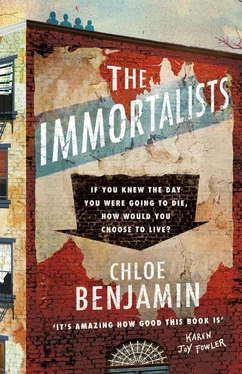

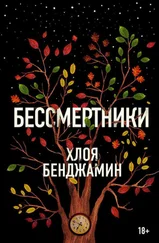

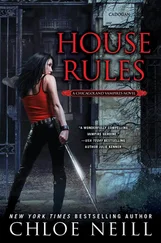
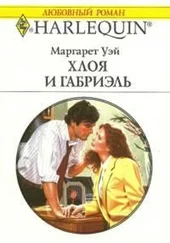
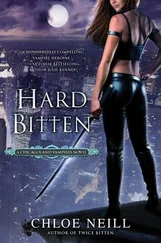

![Мелани Бенджамин - Госпожа отеля «Ритц» [litres]](/books/384861/melani-bendzhamin-gospozha-otelya-ritc-litres-thumb.webp)
